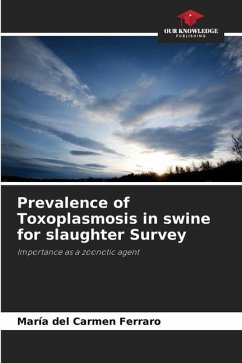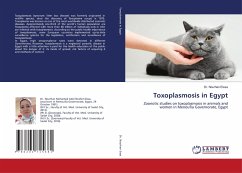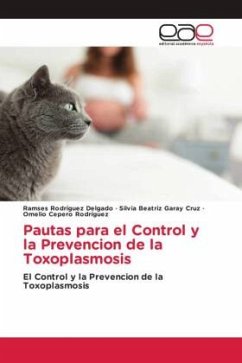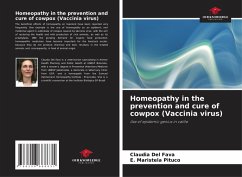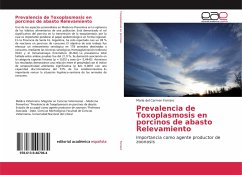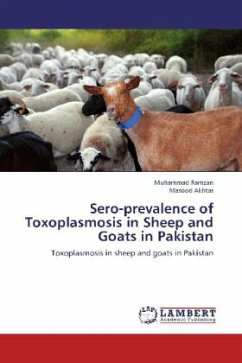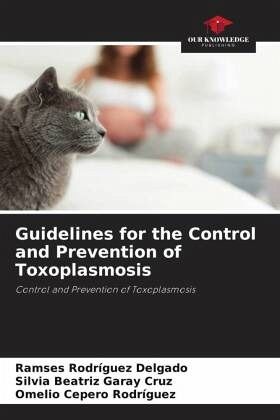
Guidelines for the Control and Prevention of Toxoplasmosis
Control and Prevention of Toxoplasmosis
Versandkostenfrei!
Versandfertig in 6-10 Tagen
29,99 €
inkl. MwSt.

PAYBACK Punkte
15 °P sammeln!
Toxoplasmosis is a disease of parasitic etiology, transmitted from cat feces, of generally latent evolution, whose greatest importance from the clinical point of view is in newborns, pregnant women and immunosuppressed patients from the point of view of cell-mediated immunity. Diagnosis is mainly serological and specific treatment is based on sulfa drugs. The vast majority of infections occur asymptomatically or with mild non-specific symptomatology. Humans are generally infected by handling and consumption of raw or undercooked infected meat, as well as by ingestion of contaminated food and w...
Toxoplasmosis is a disease of parasitic etiology, transmitted from cat feces, of generally latent evolution, whose greatest importance from the clinical point of view is in newborns, pregnant women and immunosuppressed patients from the point of view of cell-mediated immunity. Diagnosis is mainly serological and specific treatment is based on sulfa drugs. The vast majority of infections occur asymptomatically or with mild non-specific symptomatology. Humans are generally infected by handling and consumption of raw or undercooked infected meat, as well as by ingestion of contaminated food and water or during direct contact with soil, food, objects or other utensils contaminated with feces from infected cats. Toxoplasma infection is cosmopolitan, but it is more frequent in humid areas, with intermediate and warm temperatures, so its prevalence is higher in tropical and subtropical countries of the American continent. It is estimated that about one third of the world's population has antibodies to this parasite.



